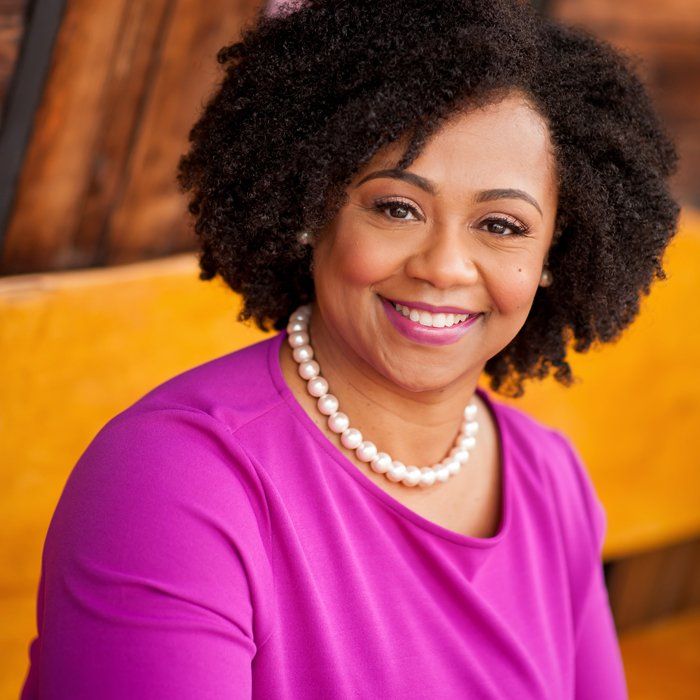APA.org.......APA Style.......APA Services.......Divisions
Q&A with Dr. Joy Harden Bradford

Note: This blog features a keynote speaker from APA 2021. This keynote will not be a session at APA 2023.
Atlanta-based psychologist Joy Harden Bradford, PhD, a.k.a., “Dr. Joy,” has swiftly become a household name, thanks to her wildly popular podcast, “Therapy for Black Girls.” There, experts address topics aimed at making mental health topics relevant and accessible for Black girls and women—everything from feeling good about your body image to shedding your “superwoman” status, to using music and dance to foster your mental health.
Dr. Joy’s success hinges partly on her adept use of social media, and in her keynote address, she’ll share tips on how you can do that, too.
Here’s a glimpse of what she’ll discuss—and at APA 2021, you’ll find out much more.
Why should psychologists get involved with media?
People are having more conversations around mental health these days, and they’re taking it more seriously. But at the same time, not everyone will cross the threshold of a therapist’s office. So for psychologists, media outreach is an important way to share our training in ways that can help people live healthier, fuller lives. Also, if we don’t provide these services, people with less knowledge will.
How can psychologists use social media to spread their message?
Sharing nuggets of information in places like Instagram and Twitter can be really helpful. For example, our online platform, Therapy for Black Girls, does that in relation to mental health topics of interest to people’s daily lives--for example how to make better decisions, or how to manage distress.
From there, consider larger platforms, like starting your own blog or podcast or being a guest on someone else's podcast. These are great ways to increase your reach and help people learn about your work and about psychology.
Any tips on presentation?
Sharing your expertise, but not acting like a know-it-all, translates really well on social media. Involving your audience is great, too. For example, on our podcast we have a Google form set up so that people can send us suggestions about new shows or things they’d like to hear about, so they really feel like they're a part of it.
What about content?
Go as niche as you can, because it helps establish you as an expert in an area. Pick something that is really interesting to you and that you know a lot about. Also, disclaimers are really important. For every episode of the podcast, I start off by saying, “I hope you enjoy this information, but I am not your therapist. Here’s how you can connect to a therapist in your area.”
By Tori DeAngelis
American Psychological Association
750 First St. NE, Washington, DC 20002

